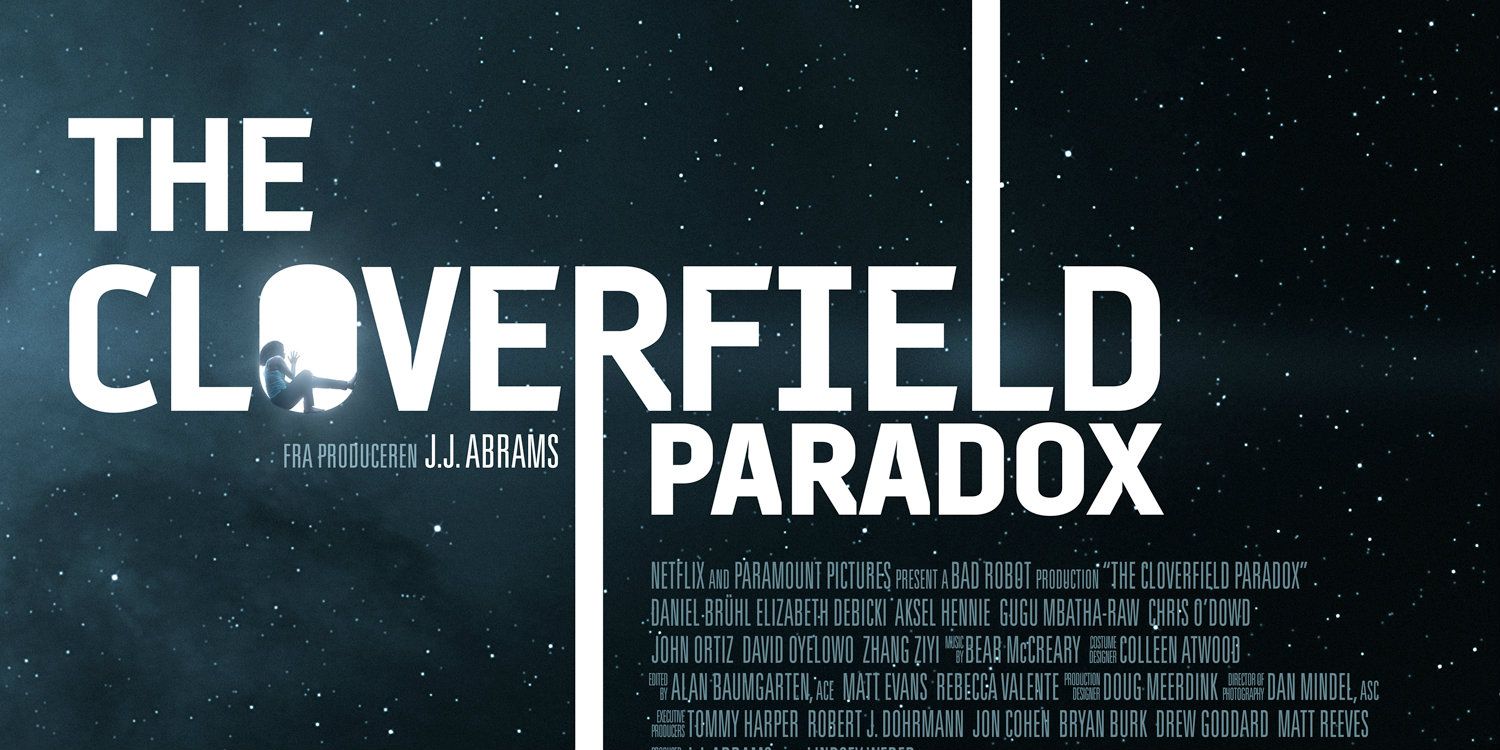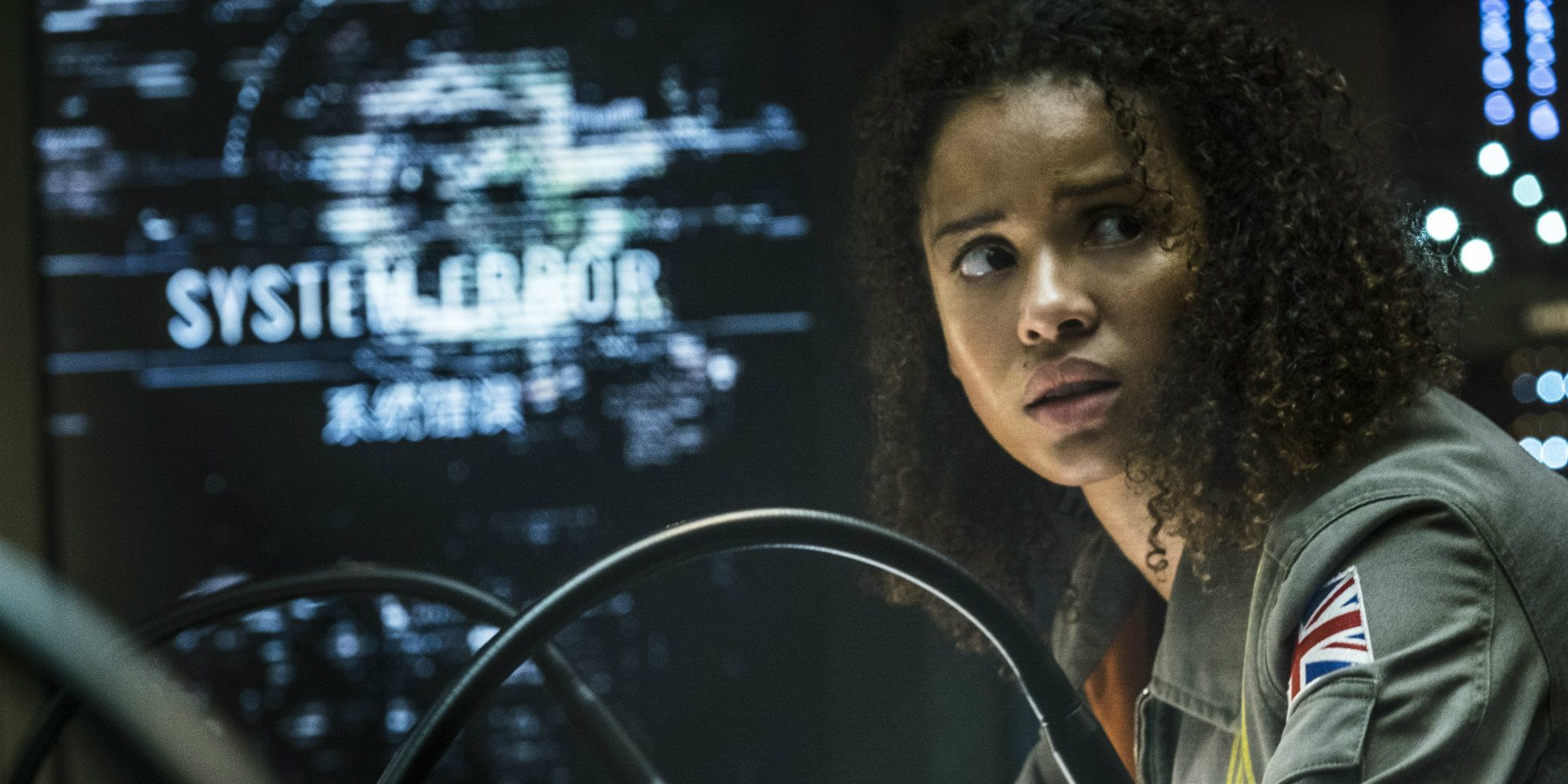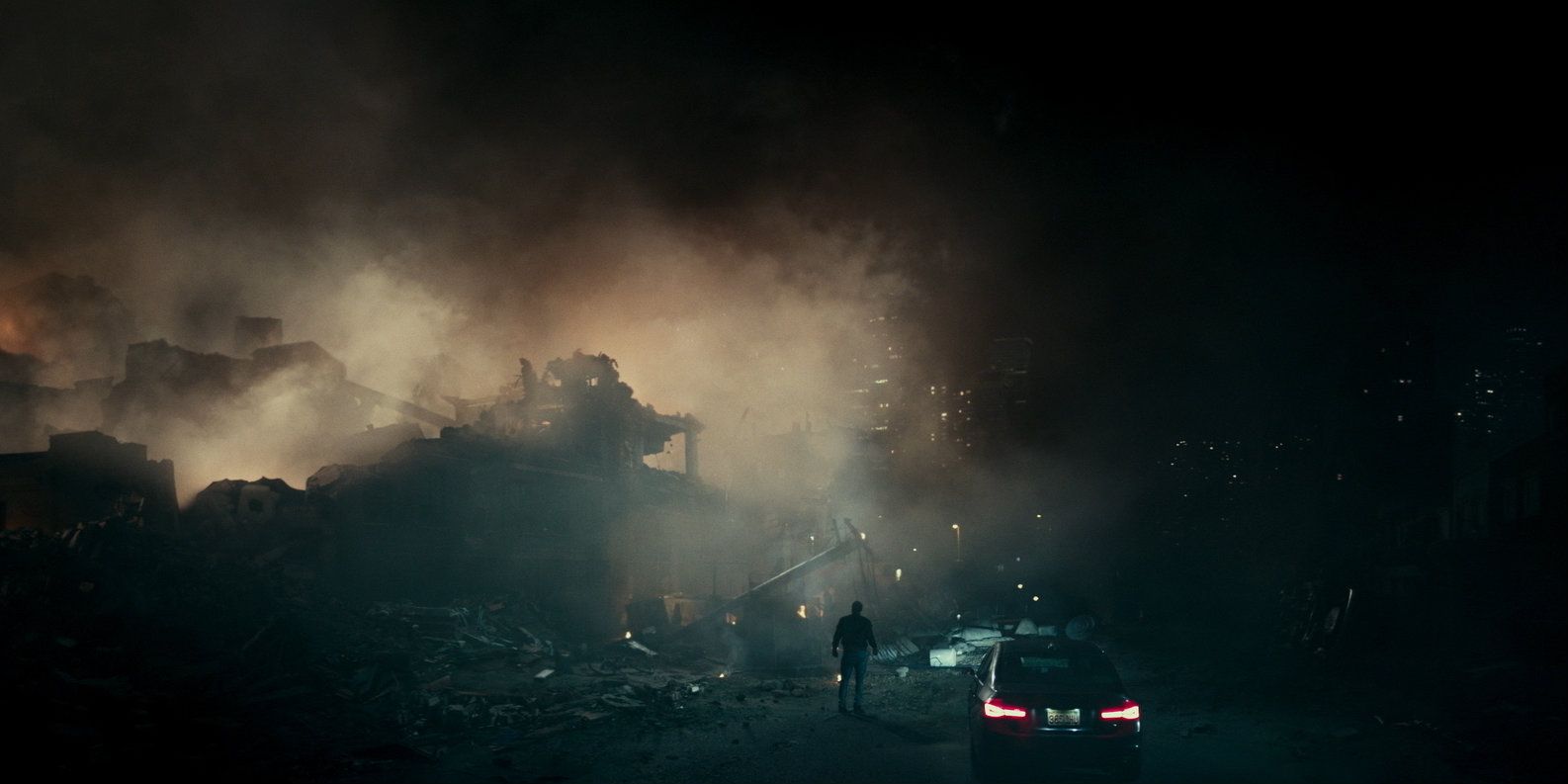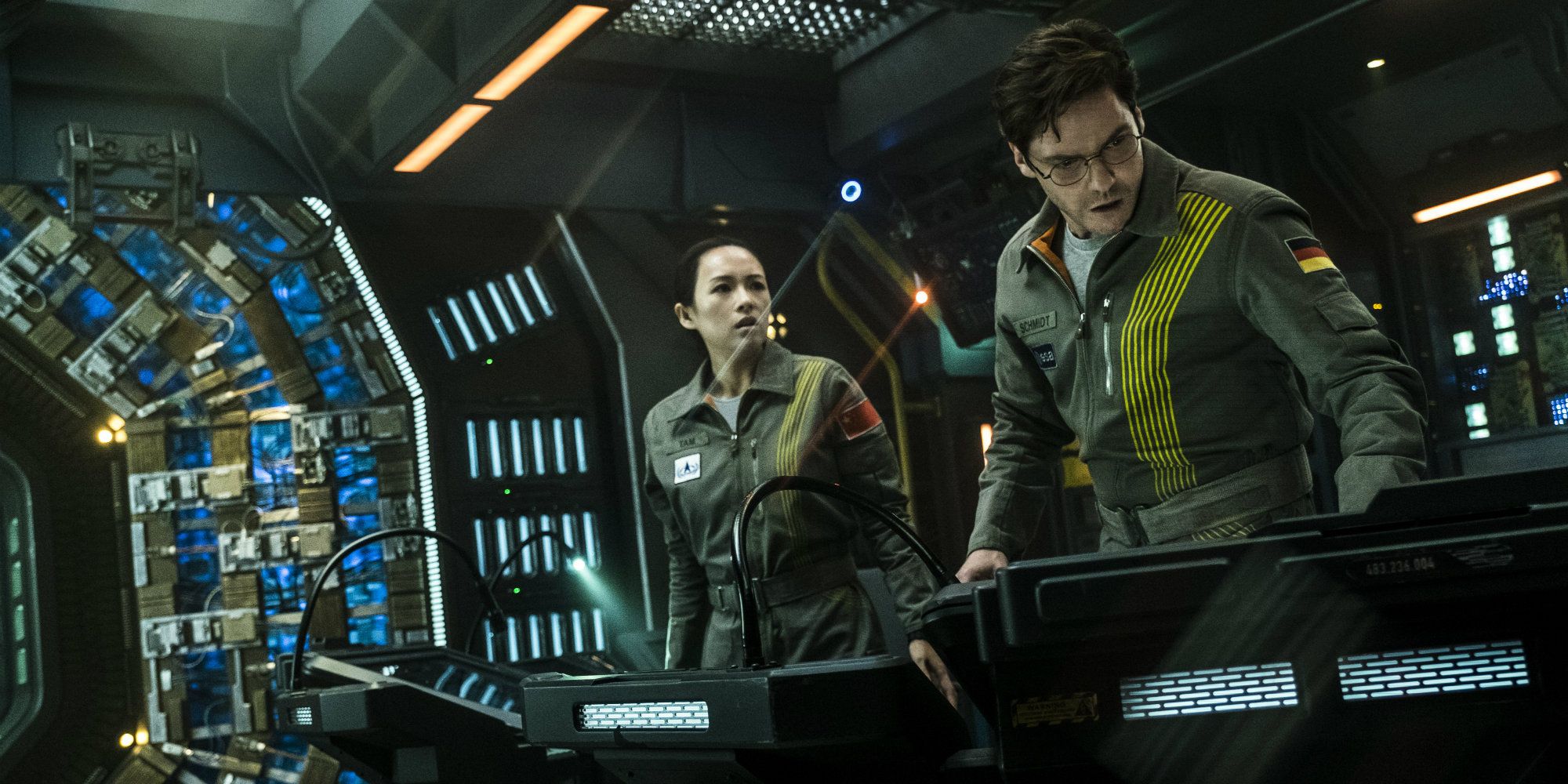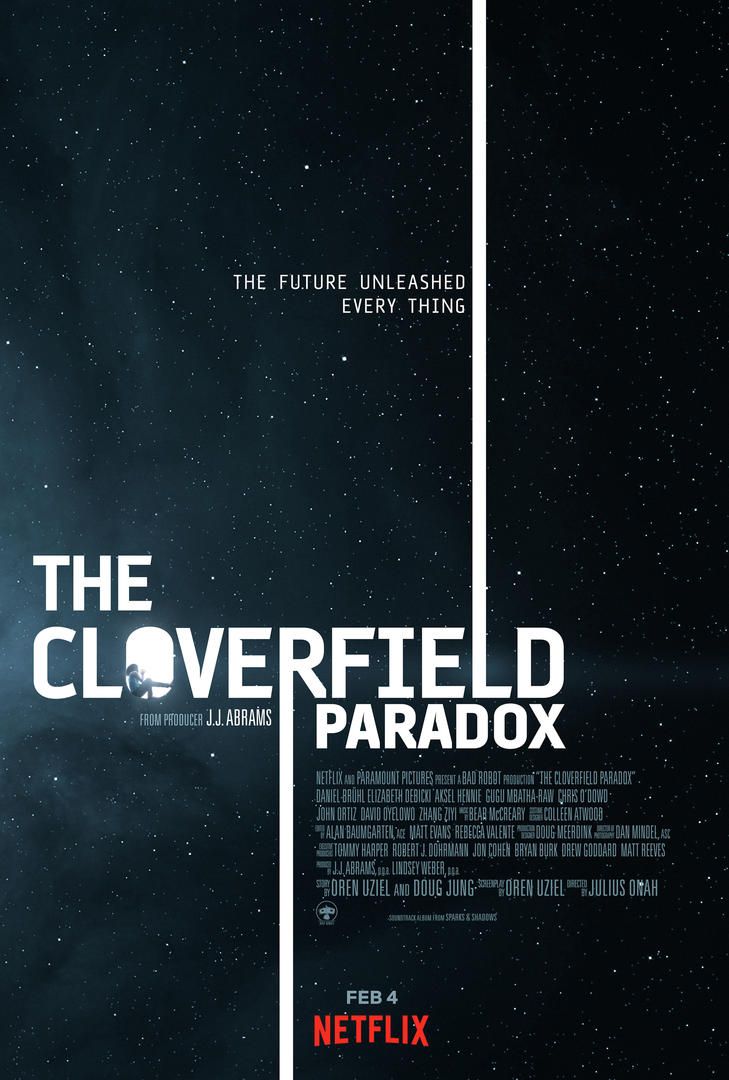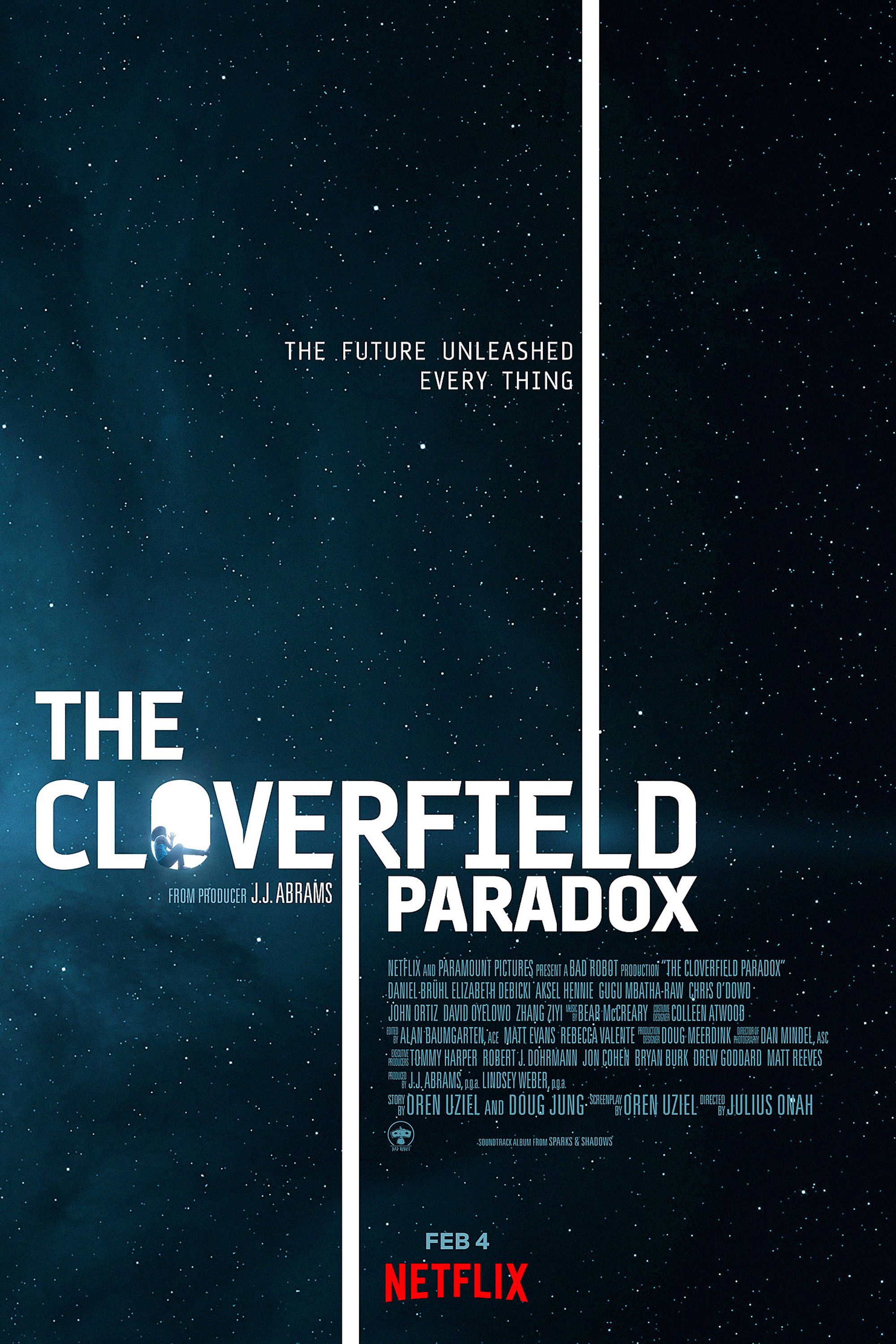The Cloverfield Paradox is a disjointed, but enjoyable sci-fi horror/thriller that has mixed success as a shared universe film.
The Cloverfield Paradox is the much buzzed about, but highly secretive third film in the Cloverfield franchise that began ten years ago, with Matt Reeves' 2008 found-footage monster flick Cloverfield. A followup to the movie was released in 2016, but that installment (Dan Trachtenberg's 10 Cloverfield Lane) is a complete departure in style and genre from Reeves' low-budget creature feature, and lacks any clear connection to its predecessor aside from the "Cloverfield" in its title. While The Cloverfield Paradox is a similar departure from the thrillers that came before it in terms of form, it manages to mostly connect the whole franchise together in a messy, but entertaining fashion. The Cloverfield Paradox is a disjointed, but enjoyable sci-fi horror/thriller that has mixed success as a shared universe film.
Cloverfield Paradox picks up sometime in the near future, where earth finds itself experiencing a worldwide energy crisis that threatens to plunge the planet into complete chaos and global warfare. The world's only hope lies with the Cloverfield Station, an international space station equipped with a machine capable of producing limitless amounts of energy, known as the Sherpard particle accelerator. However, it's theorized that the experimental accelerator could also be capable of destabilizing the very fabric of our reality, meaning that time isn't the only thing working against the astronauts aboard the Cloverfield Station.
After weeks turns into months and then years of attempting to get the Sherpard particle accelerator to work, the Cloverfield Station crew is beyond elated when they finally succeed... only for the accelerator to immediately malfunction. Once the Station's power is back up and running, the crew is shocked to discover that the earth has seemingly vanished and they have no idea where they are, the station's gyroscope now gone as well. As more and more bizarre things start happening aboard the vessel, the astronauts come to realize that they must figure out what happened and fix it, before it's too late for not only themselves but everyone back home too.
Based on a screenplay written by Oren Uziel (22 Jump Street) and story from Uziel and Doug Jung (Star Trek Beyond), The Cloverfield Paradox is a pretty straightforward horror/thriller set aboard a space station, its connections to the Cloverfield universe aside (more on that later). While the film's plot is more in the vein of something like Event Horizon than Alien or last year's Life, director Julius Onah (The Girl Is In Trouble) and his writers bring a welcome idiosyncratic touch to the proceedings that helps to liven up the otherwise formulaic narrative. The Cloverfield Paradox is more outright schlocky and darkly funny than other recent additions to its sub-genre, but still makes room for a sincerely dramatic plot thread that involves the movie's protagonist Ava Hamilton (Gugu Mbatha-Raw). The film's tonal shifts don't always work, but overall it manages to combine gallows humor with body horror and a "mystery box" narrative in an engagingly strange way.
However, as an attempt to unify the Cloverfield franchise and not just a self-contained adventure, The Cloverfield Paradox has less success. Uziel's screenplay was originally a standalone project called God Particle which then evolved into "Cloverfield 3", and it unfortunately shows in the final onscreen product. While the film both provides an explanation for the events of its previous two Cloverfield installments and even lays a foundation for the upcoming Cloverfield 4 aka. Overlord, it falls to enrich those movies in a thematic sense and serves mostly to connect them on the surface level only. The Cloverfield Paradox similarly includes a substantial subplot that further bridges the gap between Cloverfield movies, but is largely pointless in the context of the film itself and further muddles its attempts at world-building.
Many of the characters in The Cloverfield Paradox are equally disposable, but that's par for the course when it comes to this type of horror movie set in space. The Cloverfield Station astronauts are all pretty archetypical (there's the untrustworthy one, the reluctant leader, the comic relief, and so forth), but benefit from being played by an inclusive collection of top-notch acting talent that includes David Oyelowo, Daniel Brühl, Zhang Ziyi, John Ortiz, Chris O'Dowd, and Aksel Hennie, as well as Elizabeth Debicki as a more mysterious player in the story. Cloverfield Paradox likewise provides Hamilton with a pretty by the numbers character arc (complete with the requisite tragic backstory), but the eventual payoff manages to pack an emotional punch thanks to Mbatha-Raw's compelling performance.
What The Cloverfield Paradox lacks in emotional substance, it makes up for with a brisk runtime that keeps the plot developments and creepy sequences coming at a steady pace. The film likewise makes pretty decent use of its relatively modest budget to bring its primary setting to life in a visually striking way, thanks in no small part to the collaborative efforts of its production team and cinematographer Dan Mindel (Star Trek, Star Wars: The Force Awakens). There are moments during The Cloverfield Paradox where its budgetary restrictions start to show, but for the most part it succeeds at making its central set piece feel like a twisted maze of hallways where danger potentially lurks around any corner (and even within the very walls of Cloverfield Station).
Taken as a whole, The Cloverfield Paradox is a step down in quality from the previous Cloverfield movies, but still makes for a solid genre film on its own terms. Those who prefer their J.J. Abrams/Bad Robot projects on the weird side should get the most entertainment out of The Cloverfield Paradox, as will those who have a soft spot for schlocky horror/thrillers set in outer space. While it's not completely necessary to have watched both Cloverfield and 10 Cloverfield Lane before this one, the third Cloverfield movie will have more meaning for those who are already familiar with the franchise. It wouldn't have been a must-see had Paramount held onto The Cloverfield Paradox and released it in theaters as originally planned, but as a "surprise" Netflix offering it's deserving of a recommendation.
TRAILER
MORE: The Cloverfield Paradox Ending Explained
The Cloverfield Paradox is now available for streaming through Netflix. It is 102 minutes long and is Rated TV-MA.
Let us know what you thought of the film in the comments section!

